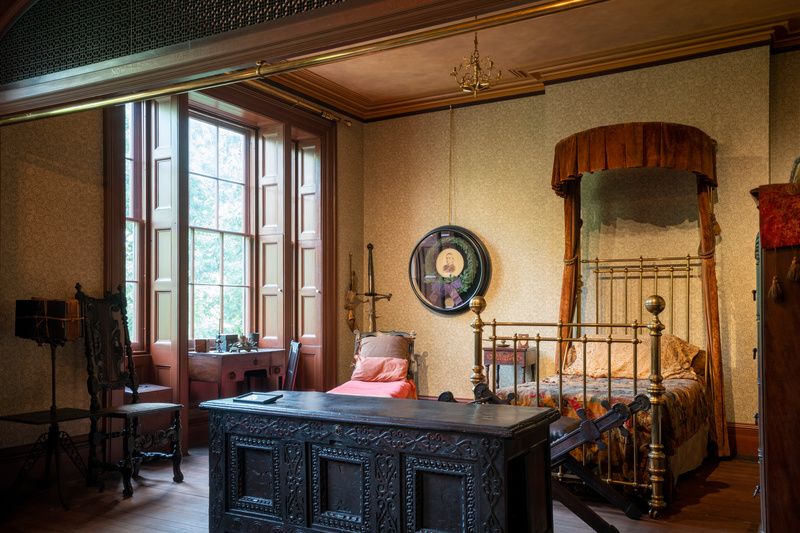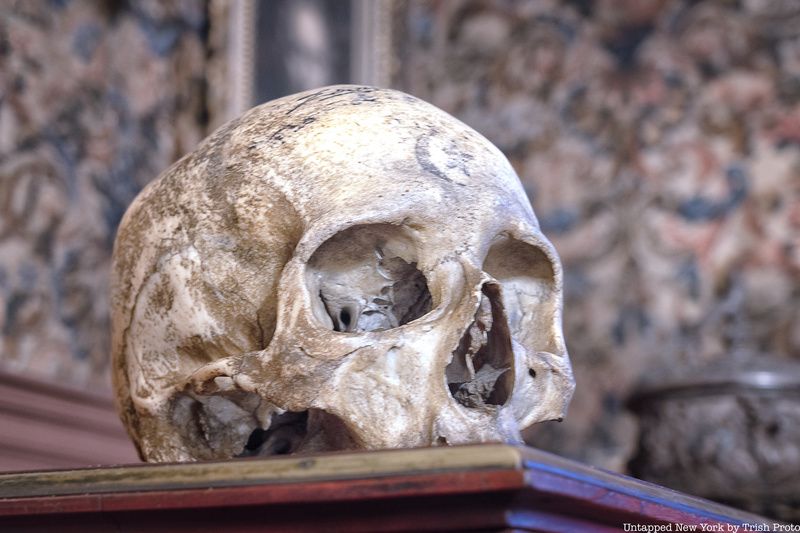Last Chance to Catch NYC's Holiday Notalgia Train
We met the voices of the NYC subway on our nostalgia ride this weekend!


The Gramercy Park clubhouse of The Players, a members-only social club for people in show business and arts patrons, contains many famous artifacts, from Mark Twain’s pool cue to portraits of A-list celebrities, rare books, and priceless stained glass windows. You might be surprised to learn that the clubhouse is also home to multiple human skulls!
See these artifacts in person when you join a tour of The Players on March 20th! This tour is free for Untapped New York Insiders. Not a member yet? Use promo code JOINUS when you start a new subscription and get your first month free. Registration for this tour opens on March 6th.
The Players was founded in 1888 by Shakespearean actor Edwin Booth, the brother of Abraham Lincoln’s assassin. Booth wanted this club to foster community among men of arts and patrons, and to provide a social setting free from the restrictions of professional and class divisions. Nikola Tesla, architect Stanford White, General William Tecumseh Sherman, and writer Bram Stoker were among the earliest members. Today’s roster includes Ethan Hawke, Morgan Freeman, Jimmy Fallon, Rachel Dratch, Martin Short, and more.
When you learn that Booth often played the role of Hamlet, you can understand why there might be skulls in the house. In the play, Hamlet famously holds up the skull of “poor Yorick” and spins further down into his existential crisis. A skull is one of the most iconic props in Shakespeare’s repertoire, so it makes sense that a clubhouse full of actors would have a few lying around.

At The Players, Booth had his own personal bedroom and parlor. These rooms are preserved almost exactly as they were when Booth died in 1893. On the bookcase, you’ll find the most famous of skulls. Legend says the skull originally belonged to a horse thief. Allegedly before he was hung, the thief made it known that his last wish was for his skull to be used by Junius Brutus Booth. Junius, Edwin’s father, was also a renowned Shakespearean actor.
Junius passed the skull down to his son, who used it many times on stage. The skull bears an inscription that reads, “And the rest is silence.”

Two other skulls are in the house, though less is known about their origins. One skull on display in a cabinet full of Booth memorabilia is signed by a contemporary of Booth’s, actor and club member Owen Fawcett. Another skull is held in the archives of the Players Foundation for Theatre Education for the use of theatre researchers.
Uncover more fascinating stories and artifacts from inside The Players on our upcoming tour!
Next, check out Top Secrets of The Players
Subscribe to our newsletter